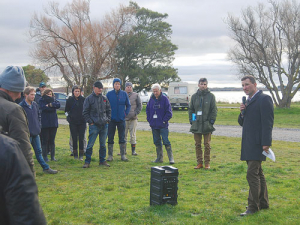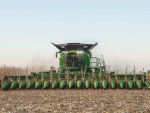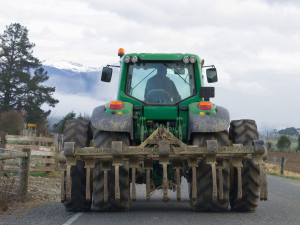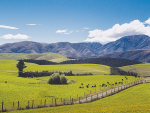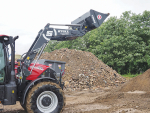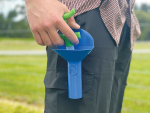Big changes loom in world food supply, says Foundation for Arable Research chairman David Birkett.
With growing interest in synthetic foods replacing traditional protein sources, the arable industry is well-placed because most of the opportunities are in plant-based material, he says.
“Plant-based material has a pretty good footprint in environmental losses and that’s where a lot of the drive will come from – the public’s demand for sustainable and efficient food production.
“The question for us is how does the New Zealand arable farmer fit into that, because a lot of the production will come from the big commodity growers around the world. We can’t compete with them so we’ve got to find NZ’s point of difference in that area.”
FAR recently held its two-day national conference at Lincoln University, on the theme ‘Growing Sustainable Futures’.
Birkett says that over its 20-year history FAR has moved from its beginnings as being concerned with simple crop agronomy. Five-six years ago it started looking at the whole farm system, rotations and how they interlinked.
Looking at that big picture brought big gains, he says, and the strategy for the next few years will be to look wider still.
“We’re now starting to shift to the next area of the whole farm business, because there are components outside the farm gate which are having a big influence on how we operate.
“We need to integrate those issues into the farming business and address them.”
Opening the conference, Birkett said FAR’s “front-footing” of the issues will put arable farmers in a position to deliver answers and have proof at hand when questions are asked of them.
The issues facing the industry have become much broader, he says.
“As we’ve seen over the last 10 years, climate seems to be changing whether we believe in climate change or not. The fact is the distribution of rainfall is changing.
“We need to understand what those changes mean, how we manage them and whether they give us an opportunity -- maybe new crops that may be grown in areas where they previously weren’t. And how do we maximise those crops to get the most out of them?
“Markets are also changing. We’ve got to understand the demands of the markets we’re selling into. If we don’t we’re not going to hit those markets correctly.
“There’s now a lot of talk about proteins replacing meat and milk in the marketplace. What is our role there?”
Birkett said protein replacement is a “really interesting” development because of arable farming’s environmental footprint.
“We must try to understand what those advantages are and front-foot wherever we can.
“Our international collaborations allow us to do that, and through FAR Australia we are able to get access to research we would never get done here because of the scale of our industry.”
He predicted further gains from agronomy improvements of 1-2%, but 5-10% gains from market opportunities.
Birkett, a Leeston cropping farmer with a recent but unofficial world record wheat yield to his name, also spoke to conference attendees during a field trip to the nearby shore of Lake Ellesmere/Te Waihora.
He recommended farmers form community groups to deal with issues in their areas, explaining how he and his neighbours formed a group to liaise with ECan. Among other achievements, their lobbying had helped simplify ECan’s environmental compliance paperwork.
Meanwhile, the country’s 2500 arable farmers are being urged to vote ‘yes’ in the upcoming referendum to confirm FAR’s mandate to levy its members for the next few years.
Birkett expects the referendum to pass but says it isn’t just a rubber stamp. “It’s always good to check the pulse.”

